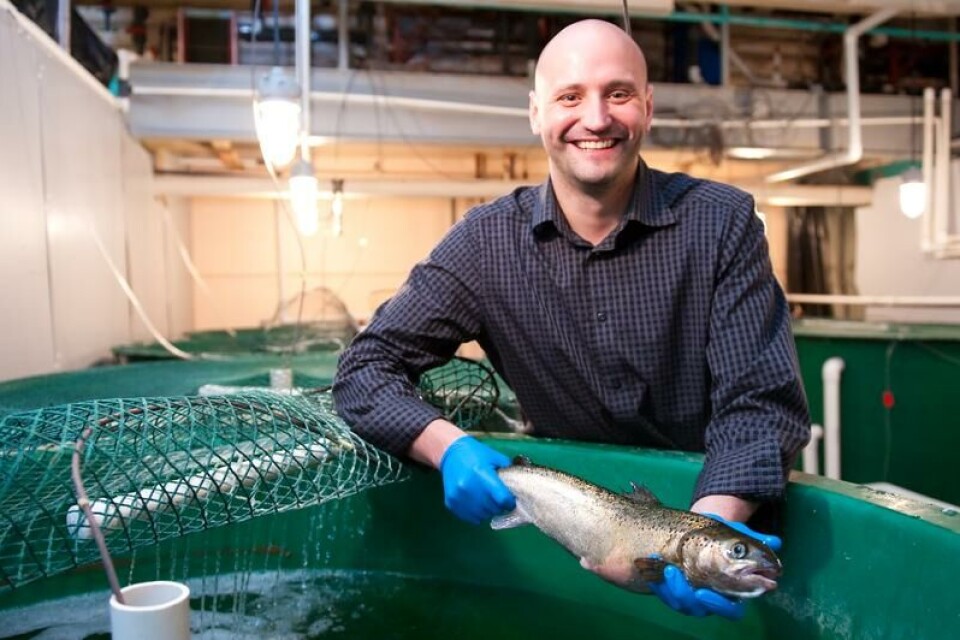
New money will help improve fish health
As part of the +$200 million Ocean Frontier Institute collaboration between three top ocean-science universities in eastern Canada, the Atlantic Veterinary College will be focusing on researching innovative ways to improve fish health in aquaculture.
The Atlantic Veterinary College at the University of Prince Edward Island (AVC-UPEI) has been granted over $2.5 million to conduct research as part of the new Ocean Frontiers Institute (OFI).
In addition to research exploring epidemiology and toxicology, a large component of that research focuses on improving fish health.
Dr Mark Fast, a world-leading researcher in aquatic animal health, and an associate professor at the AVC-UPEI, will be working with the team leader at Memorial University (MUN), Dr Matt Rise, on several projects that aim to increase the sustainability and overall fish health management strategies for aquaculture.
For example, one objective of their work includes developing sustainable and therapeutic diets for salmon that will help combat
disease, while improve the overall health of the fish. Another important objective in the collaboration will be to understand and mitigate the effects of pathogens and climate change on fish health and welfare.
"The funds are important because we are trying to develop integrated strategies for pest/pathogen control in the changing aquatic environment," Fast explained to Fish Farming Expert.
"This means, identifying novel therapies that work under new temperature and oxygen regimes, and that work under co-infection."
Fast went on to say how on co-infections of pathogens in aquaculture is a really important, and relatively under-researched, area.
"We have generally been limited to producing and collecting data for single therapies, or single pathogen infections - it's time to bring these linear paths into a network that can be addressed by differing expertise," said Fast.
And with the AVC-UPEI and MUN collaborating together , that is exactly what will happen.
"That is what the different schools and researchers bring to this institute, are different strengths and interests and ways of attacking a problem from different and innovative approaches," he emphasized.
"This funding will support staff and student research, and maintain AVC-UPEI as a National and World leader in Aquatic Animal Health," concluded Fast.
Other research objectives of the group include developing more sustainable control measures for pathogens of cultured fishes; lessening the impact of aquaculture on the environment and wild fish populations; and further develop the aquaculture production of emerging/alternative species.























































